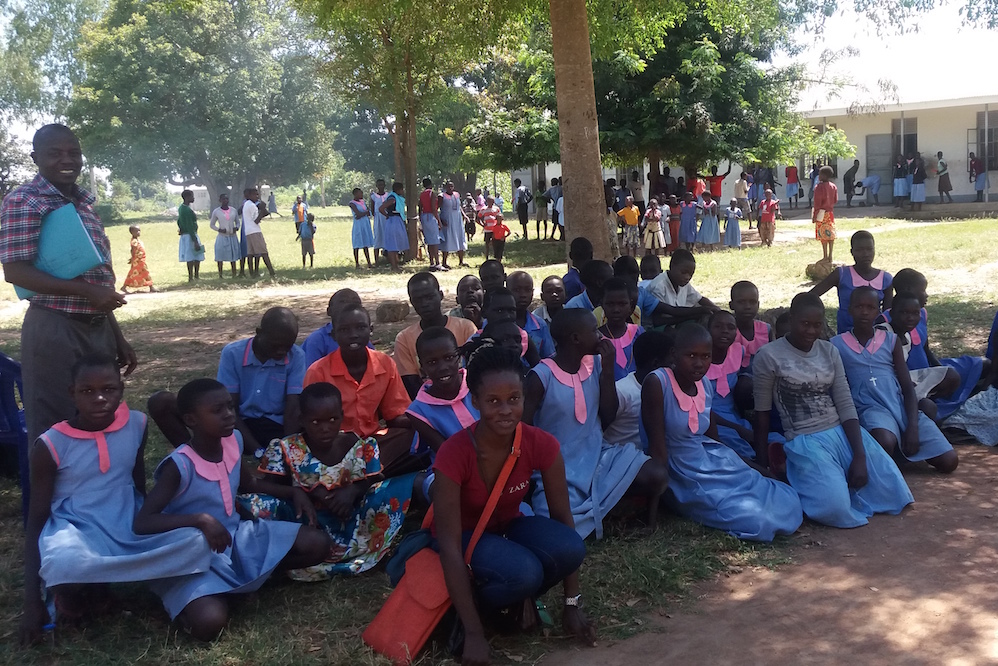
“We do research to discover the risk factors that expose children to injection-related disabilities”
Children with disabilities, Global Youth Ambassadors
For International Day of Women and Girls in Science on February 11, we asked our Global Youth Ambassadors to share their stories.
Atutur Primary School is located in Kumi district, Eastern Uganda. Here, my research partner and I found 46 boys and girls suffering from a post-injection disability called Gluteal Fibrosis.
This is a condition acquired by children following the administration of injections on their buttocks. Gluteal Fibrosis causes limitation in hip movement and function causing the affected child to squat in an abnormal butterfly position.
The children that we spoke to with Gluteal Fibrosis complained of having difficulty in sitting, walking or running.
This affected the way they would relate with other children in the school since this disability made it difficult for them to sit properly on classroom benches or play with classmates.

The majority of the affected children admitted to feeling embarrassed among their friends which resulted in low self esteem and isolation.
My research partner and I work for the Uganda Post-Injection Disability Prevention Program, which is a collaborative research programme committed to discovering the risk factors that expose children to injection-related disabilities and to find ways of preventing Ugandan children from acquiring these conditions.
As a Global Youth Ambassador, I am humbled to be part of this programme because it gives me the opportunity to raise awareness about this problem.
Read our other stories for International Day of Women and Girls in Science
More news

